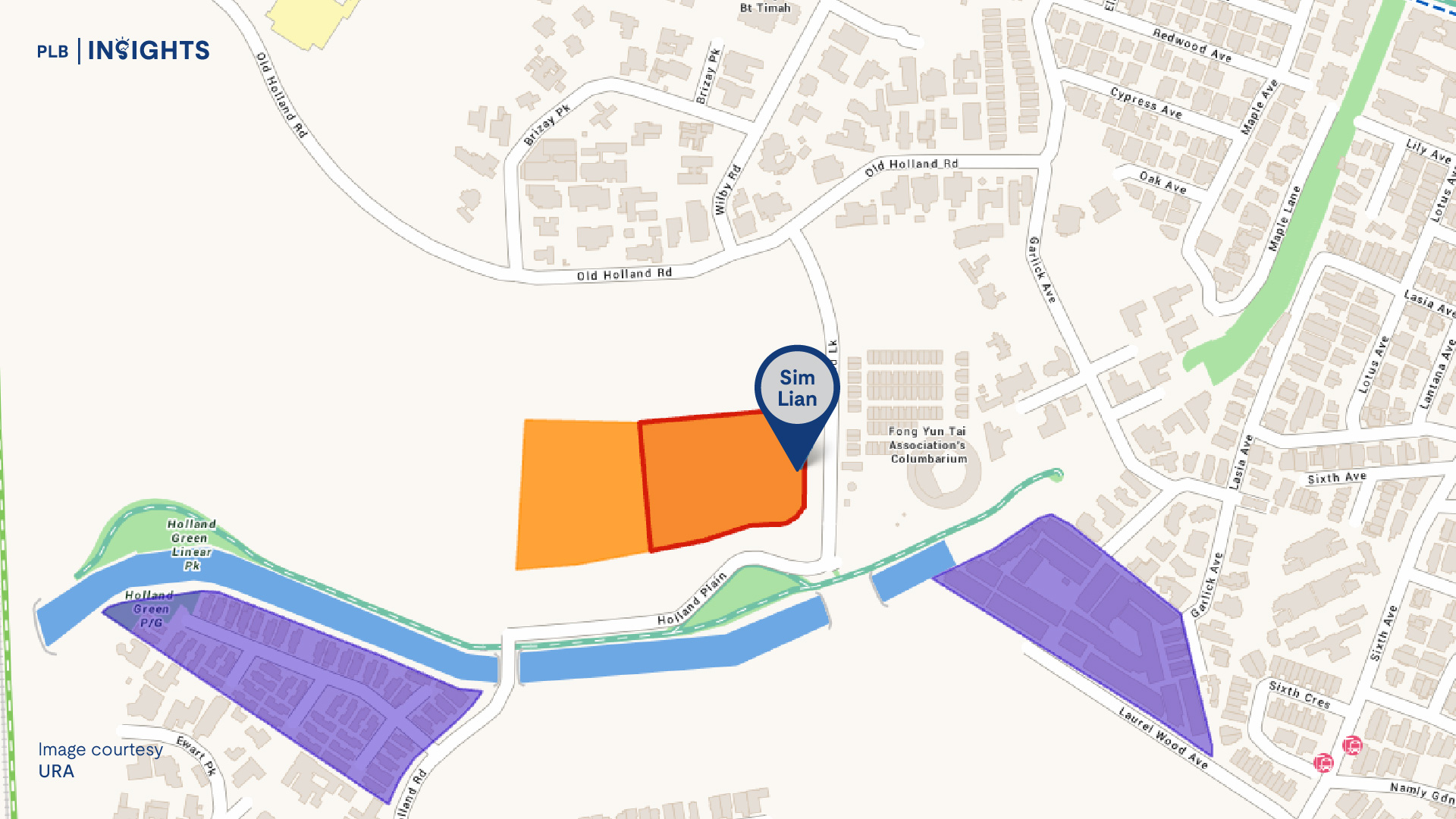
The housing market in Singapore is continuing to evolve, with more first-time homebuyers entering the market in search of their dream home. While the prospect of owning a home is an exciting milestone for these homebuyers, the journey towards homeownership is rife with complexities and challenges. One such aspect of the journey is the process of securing a mortgage that aligns with your financial goals.
From navigating different rates and understanding hidden costs to seeking advice from qualified professionals, there are several factors homebuyers need to take into consideration to prevent mistakes. In this guide, we are going to explore five common pitfalls and mistakes that first-time homebuyers in Singapore can avoid during the process of securing and paying their mortgage, offering valuable insights to help them make informed decisions and avoid costly mistakes.
Mistake #1: Not Researching and Comparing Rates
The first critical mistake first-time homebuyers in Singapore can make is not conducting thorough research and comparing mortgage rates. The interest rate on a mortgage payment plays a significant role in determining what your overall cost of homeownership and your monthly payments will be. It is key to note that even a slight difference in interest rates can impact your monthly mortgage payments, as well as the total amount paid over the duration of the loan term.

Understanding the Types of Interest Rates
Mortgage loans in Singapore can come with two interest rate options: Fixed-rate or Floating-rate packages. The main difference between the two options is that fixed-rate mortgages offer homebuyers stability with an interest rate that remains constant throughout the loan term, whereas a mortgage loan with a floating interest rate can fluctuate based on market conditions in Singapore.
Buyers who opt for a fixed interest rate are protected from the fluctuations in the market over the period of their loan term. This option is ideal for those who prefer the certainty of knowing exactly how much they must pay each month and for how many years to avoid the risk of rising interest rates.
To break it down even further, there are several types of floating interest rate packages homebuyers are offered. Let’s go over some of these.
Board Rates: A board rate is a type of interest rate on home loans that is derived by banks internally and can vary across different financial institutions. The benchmarks that are used and the manner in which the rates are decided are not open to the public. Board rates typically do not fluctuate as frequently as other floating rate options.
Singapore Swap Offer Rate (SOR): Rather than using the internal speculation in a bank, the SOR is a type of floating interest bank rate that is derived from external sources and determined by the foreign exchange rate with the US dollar.
Singapore Interbank Offered Rate (SIBOR): SIBOR is a type of floating rate that reflects the cost of borrowing for banks in Singapore. These interest rates are based on the rate for lending between banks within the country, and are less volatile compared to the SOR rates due to being more impacted by local interbank rates rather than global rates.
Singapore Overnight Rate Average (SORA): This is a floating interest rate benchmark which is managed by the Monetary Authority of Singapore (MAS). It reflects the average rate at which banks lend Singapore dollars to one another on an overnight basis. SORA has been identified as a benchmark for interest rates for mortgages in Singapore.
We previously shared an article on the pros and cons of these different types of mortgage loans with floating interest rates, feel free to check it out to learn more about which one could be ideal for you.
Shopping Around
Now that we have gone over the different types of interest rates and loan durations, another tip to avoid making this mistake is to take the time to explore your options. It is essential for first-time homebuyers to take a look at multiple lenders, including financial institutions, banks and mortgage brokers to find the most competitive deals. This can ensure that buyers have a range of rates and terms that suits their budget best.
Mistake #2: Skipping the Pre-Approval Process
The second mistake homebuyers can make when looking to secure a mortgage is skipping the pre-approval process. Getting a pre-approval for a mortgage is an essential step that involves a lender assessing the buyer’s financial situation, credit, and their eligibility for a mortgage loan. Failing to do so can cause delays and uncertainties in the homebuying process.
The process of receiving a mortgage loan has several stages and starts with the pre-approval stage. After doing your research and having a good understanding of their financial situation, including income, expenses, credit history and savings, buyers can determine how much they can afford to borrow and repay comfortably.
In-Principle Approval (IPA)
The In-Principle Approval (IPA) is a term used by lenders in Singapore to indicate a conditional approval for a home loan based on the buyer’s creditworthiness and financial information. The typical IPA from a bank has a validity of 30 days, during which a buyer can proceed with the property hunting process and finalise the mortgage application process.
Moreover, having an IPA makes it easier for homebuyers to narrow down their options when property hunting, with a budget in mind for property prices.
Mistake #3: Neglecting To Consider Additional Costs

Another common mistake first-time homebuyers may make is neglecting to consider additional costs and expenses throughout the homebuying process. Beyond the purchase price of the property and the mortgage loan, there are various other costs associated with buying a home that need consideration along with monthly mortgage payments. This includes stamp duties like the Buyer’s Stamp Duty (BSD) and the Additional Buyer’s Stamp Duty (ABSD), buyers must pay. Stamp duty rates vary based on factors like the property price, property type and a buyer’s residency status.
Additionally, things such as legal fees for working with any professionals within the industry, renovation and furnishing costs, maintenance and repair costs, and things like home insurance all add up and need to be budgeted.
Failing to account for these extra costs can lead to financial strain and potential challenges in managing homeownership expenses. Understanding the full scope of homeownership costs and the mortgage loan can help buyers manage their expenses effectively and go through the process with minimal stress.
Mistake #4: Underestimating the Importance of A Property Valuation
The fourth mistake many buyers make when securing a mortgage for their property is underestimating the importance of a property valuation. A property valuation is an essential step in the mortgage process, one that should not be avoided, as it determines the fair market value of the property that is being purchased.
Failing to accurately assess the value of property that is being purchased can have significant implications for both parties involved – the buyers and lenders.
Accuracy of the Purchase Price
Getting a property valuation ensures that the purchase price of the property is aligned with its true market value. By obtaining a professional valuation, buyers and sellers can verify that they are paying and charging a fair price for the property. This helps prevent overpaying as a buyer and undercharging as a seller.
Additionally, a property valuation can provide insights into the potential for property appreciation or depreciation over time, helping buyers make informed decisions regarding their long-term investment strategies for the property.
Risk Assessment for Lenders
Property valuations are also used by lenders to assess the risk associated with their mortgage loans. An inflated valuation could result in a higher loan amount. This could potentially lead to financial strain on the buyer’s end for paying their monthly mortgage payments and increase the risk for the lender.
The property valuation also plays a crucial role in determining the Loan-to-Value Ratio (LTV) of a mortgage. The LTV is a metric that is calculated by dividing the loan amount for a property by the appraised value or purchase price of the property and is expressed as a percentage.
Lenders use the LTV to evaluate the risk of the loan and may be able to offer more favourable terms to borrowers with a LTV ratio.
Mistake #5: Not Seeking Professional Advice
By seeking professional help from qualified experts in the real estate and finance industry, first-time homebuyers in Singapore get the opportunity to access valuable insights, resources and guidance every step of the way to make informed decisions and avoid costly mistakes along the way.

Mortgage Brokers
Mortgage brokers help homebuyers navigate the mortgage market in order to compare loan options that are available and best suited for buyers and secure competitive interest rates. Moreover, brokers have access to multiple lenders that can provide advice tailored to each buyer’s goals, budget and financial situation.
Real Estate Consultants
Real estate consultants play a crucial role in the buying and selling process of a property. They can offer expertise on property selection, contract terms, negotiation strategies, and current market trends, which can help buyers find their dream home and navigate all the complexities of a property transaction.

Lawyers
Legal professionals like property and conveyancing lawyers review legal documents, conduct thorough due diligence, and ensure that the property transaction is successful and legally binding. As there are several legal implications and obligations when it comes to property ownership, receiving legal advice is essential for first-time homebuyers.
Financial Advisors
Financial advisors are also professionals in the industry that can assist homebuyers in making sure their financial goals and objectives are aligned with the property they intend to buy. They can also offer insights on mortgage affordability and the long term implications on their finances.
Closing Thoughts
As first-time homebuyers in Singapore navigate the ever-changing and competitive real estate market, it is necessary to understand the intricacies of the process of securing a mortgage. Steering clear of common mortgage mistakes – such as not considering future interest rate hikes, choosing the wrong type of mortgage, and underestimating hidden costs that can arise – is key to avoiding costly pitfalls in your property journey.
Remember to stay informed, seek advice from qualified professionals, and carefully evaluate all of your options to secure a loan that sets you on the path to long-term financial security and investing in your dream home.
Get in Touch With Us
If you are currently on the hunt for your first home and have any questions or concerns regarding the homebuying process, feel free to reach out to us here for a consultation. From looking at home loans and securing a mortgage to getting the keys to your dream home, our team of experienced consultants will be happy to assist you every step of the way.
See you in the next one.







